Economic Inequality and Charity
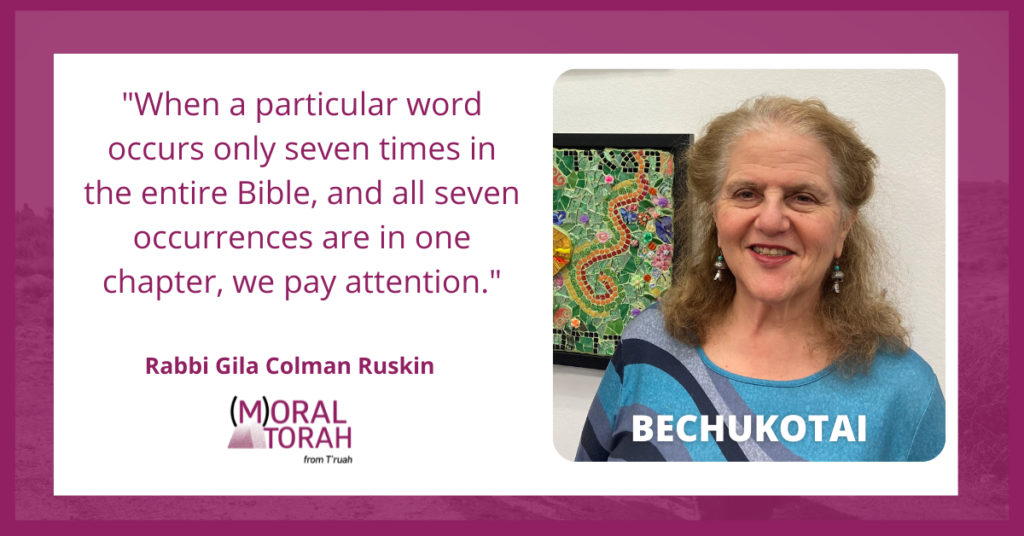
Not Just Chance: Intentional Choice
When a particular word occurs only seven times in the entire Bible, and all seven occurrences are in one chapter, we pay attention.
more
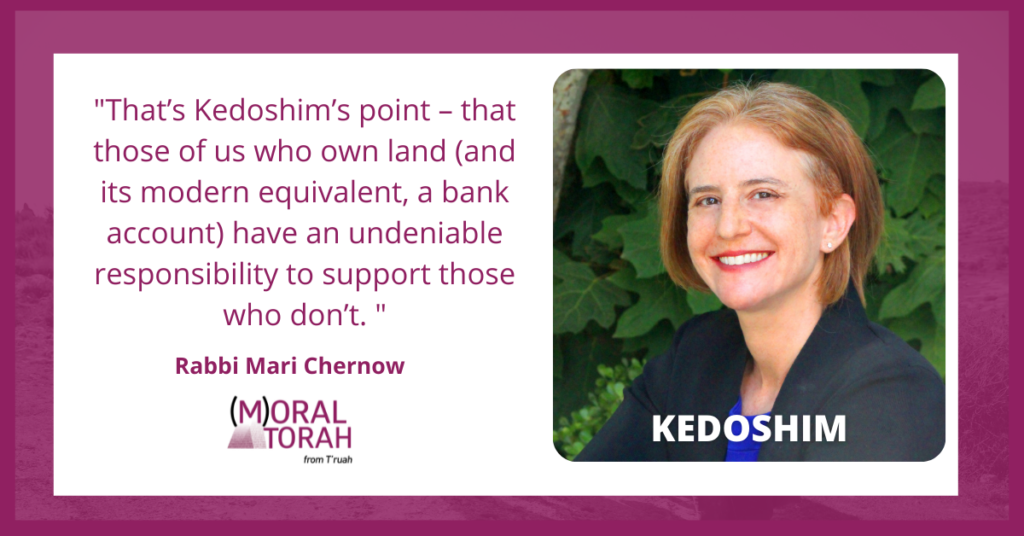
The Essence of Being a Jew
That’s Kedoshim’s point – that those of us who own land (and its modern equivalent, a bank account) have an undeniable responsibility to support those who don’t.
more
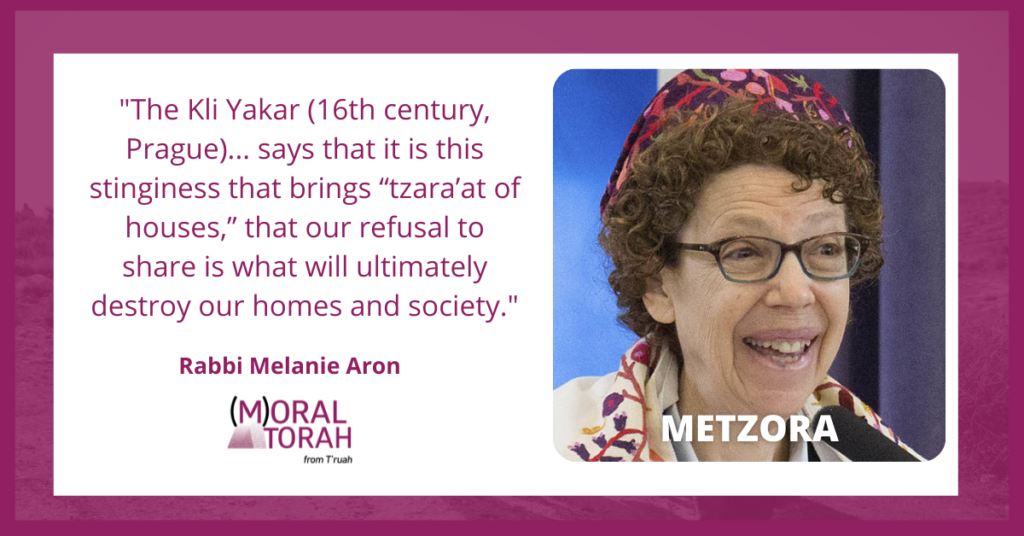
Unlearning the Tzara’at from Our Walls
The Kli Yakar (16th century, Prague)... says that it is this stinginess that brings “tzara’at of houses,” that our refusal to share is what will ultimately destroy our homes and society.
more
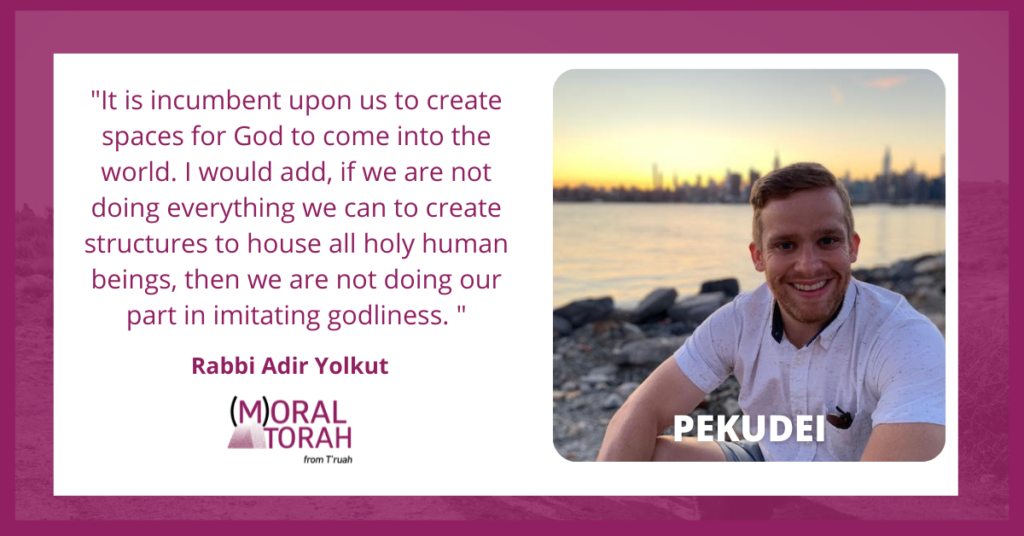
Building Structures to House All Images of God
It is incumbent upon us to create spaces for God to come into the world. I would add, if we are not doing everything we can to create structures to house all holy human beings, then we are not doing our part in imitating godliness.
more
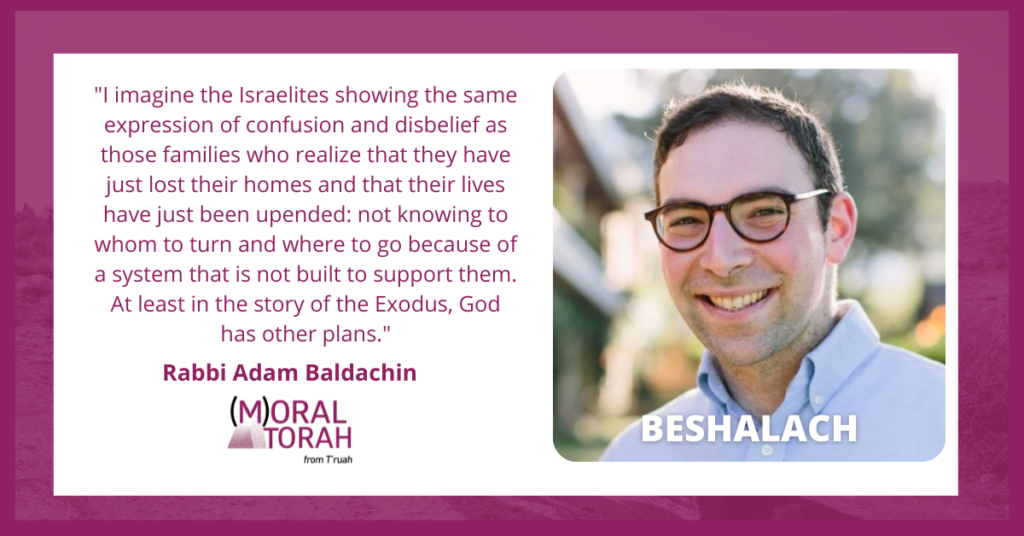
The Wilderness of Homelessness and a Way Forward
I imagine the Israelites showing the same expression of confusion and disbelief as those families who realize that they have just lost their homes and that their lives have just been upended: not knowing to whom to turn and where to go because of a system that is not built to support them. At least in the story of the Exodus, God has other plans.
more
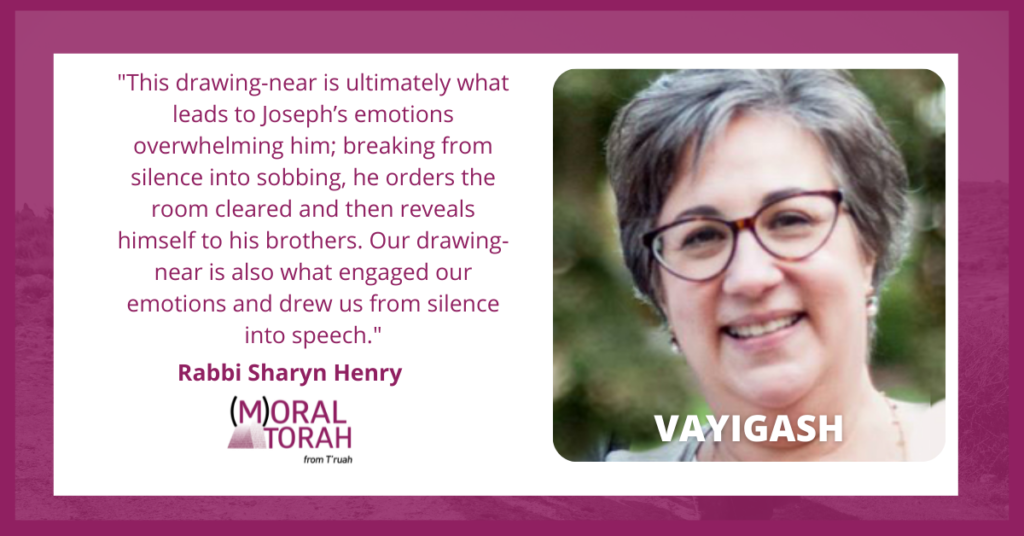
How Drawing Near Leads to Speaking Out
This drawing-near is ultimately what leads to Joseph’s emotions overwhelming him; breaking from silence into sobbing, he orders the room cleared and then reveals himself to his brothers. Our drawing-near is also what engaged our emotions and drew us from silence into speech.
more
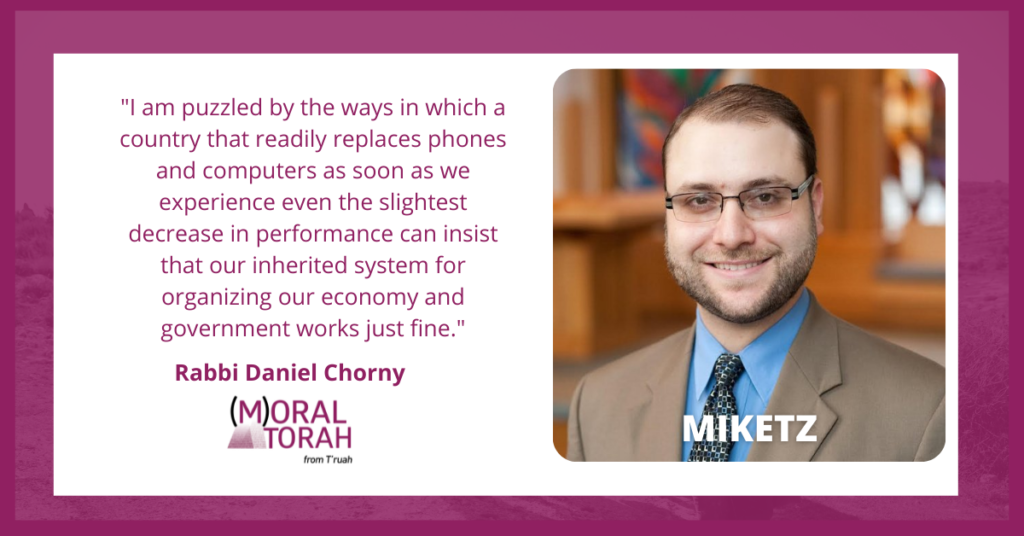
Joseph and His Amazing Technocratic Dream Coat: The Descent to Tyranny
I am puzzled by the ways in which a country that readily replaces phones and computers as soon as we experience even the slightest decrease in performance can insist that our inherited system for organizing our economy and government works just fine.
more
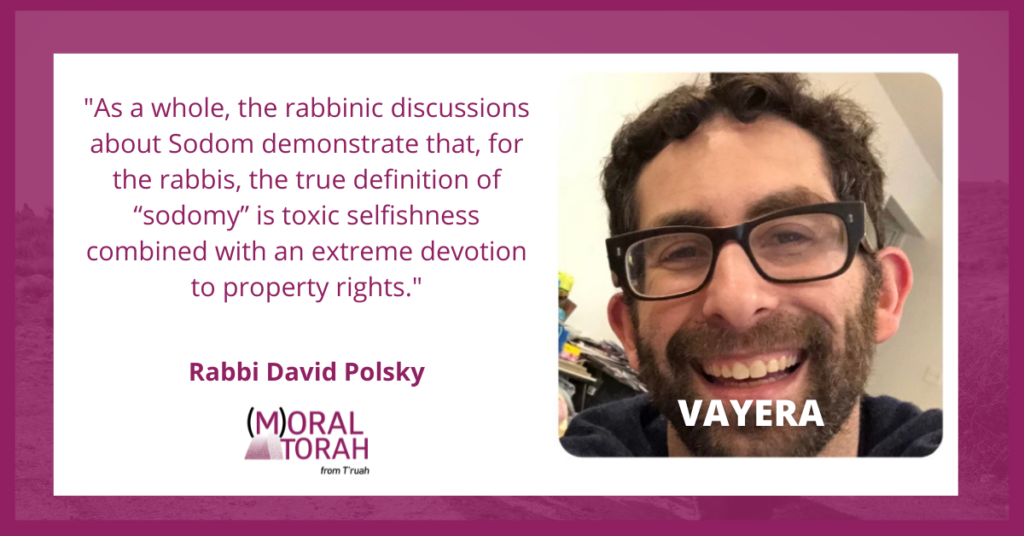
In Our Rabbis’ Eyes, “Sodomy” Meant Toxic Selfishness
As a whole, the rabbinic discussions about Sodom demonstrate that, for the rabbis, the true definition of “sodomy” is toxic selfishness combined with an extreme devotion to property rights.
more
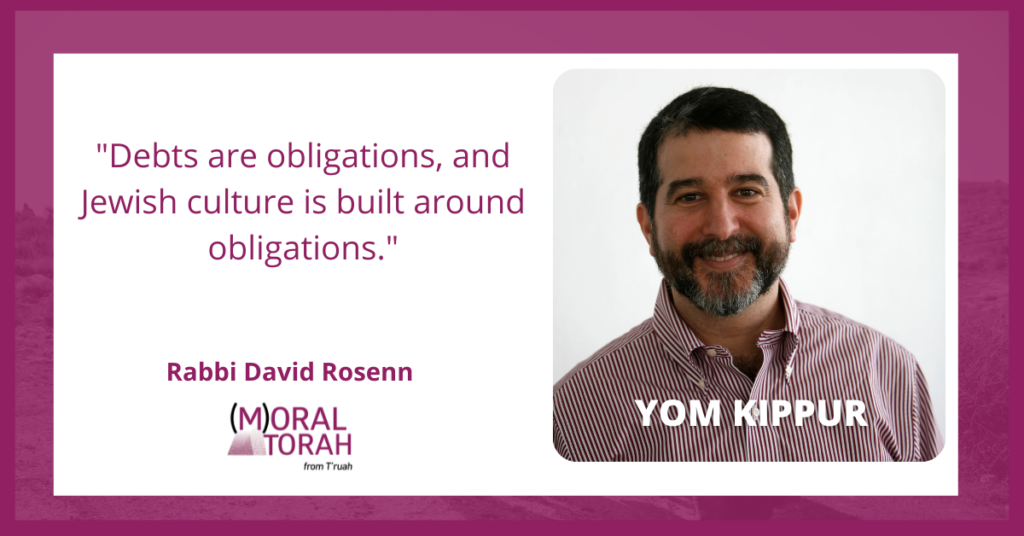
Canceling the Cancellation of Debts: A Theological Case for Pruzbol
Debts are obligations, and Jewish culture is built around obligations.
more
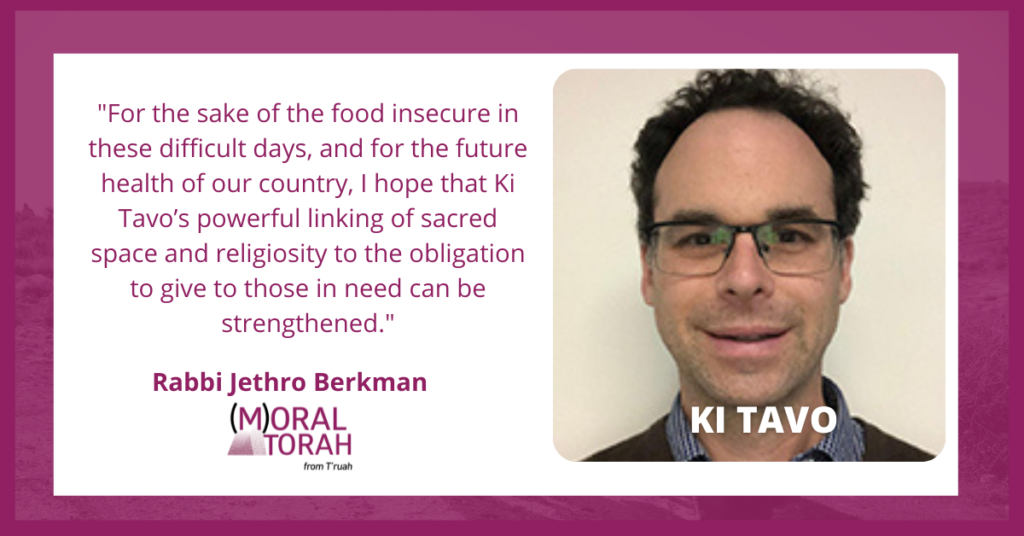
Cultivating a Culture of Giving
For the sake of the food insecure in these difficult days, and for the future health of our country, I hope that Ki Tavo’s powerful linking of sacred space and religiosity to the obligation to give to those in need can be strengthened. As Americans increasingly seek spirituality and community outside of organized religion, community builders, religious and non-religious alike, must work to cultivate cultures of giving.
more
